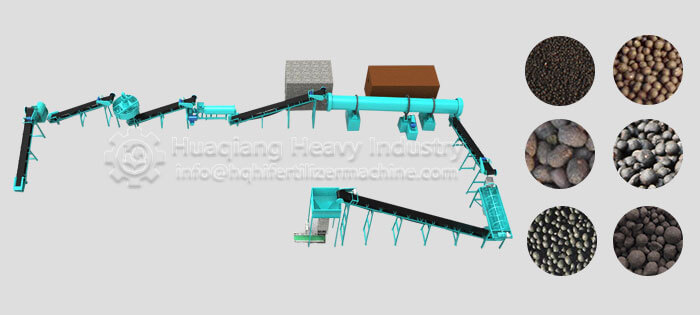
Organic fertilizer production lines are key equipment for turning agricultural waste into resources. Their stable, long-term operation directly impacts a company’s production efficiency and profitability. A reliable line not only ensures consistent product quality, but also reduces equipment breakdowns, lowers maintenance costs, and improves return on investment.
1.Matching Equipment and Process
Use different pre-treatment equipment for raw materials like livestock manure or straw.
Choose core equipment (like compost turning machines, crushers, granulators) based on your output needs.
Opt for modular production line designs – they’re easier to maintain and expand later.
2. Daily Maintenance System
Create detailed checklists covering key items: bearing lubrication, belt tension, screen integrity, etc.
Set up a three-level maintenance system: daily checks, monthly servicing, and annual overhauls.
Pay special attention to equipment in hot, humid environments (like granulators and dryers).

3. Operator Training
Train organic fertilizer production line operators thoroughly on standard procedures.
Establish clear Standard Operating Procedures (SOP) to minimize human error.
4. Smart Monitoring Systems
Install sensors to track real-time data: equipment current, temperature, vibration in critical areas, and production output.
Use this data to predict potential failures and perform preventative maintenance.
In summary, ensuring stable, long-term operation requires focusing on equipment selection, maintenance routines, and staff training. Maintain a good relationship with your equipment supplier for ongoing technical support and spare parts.